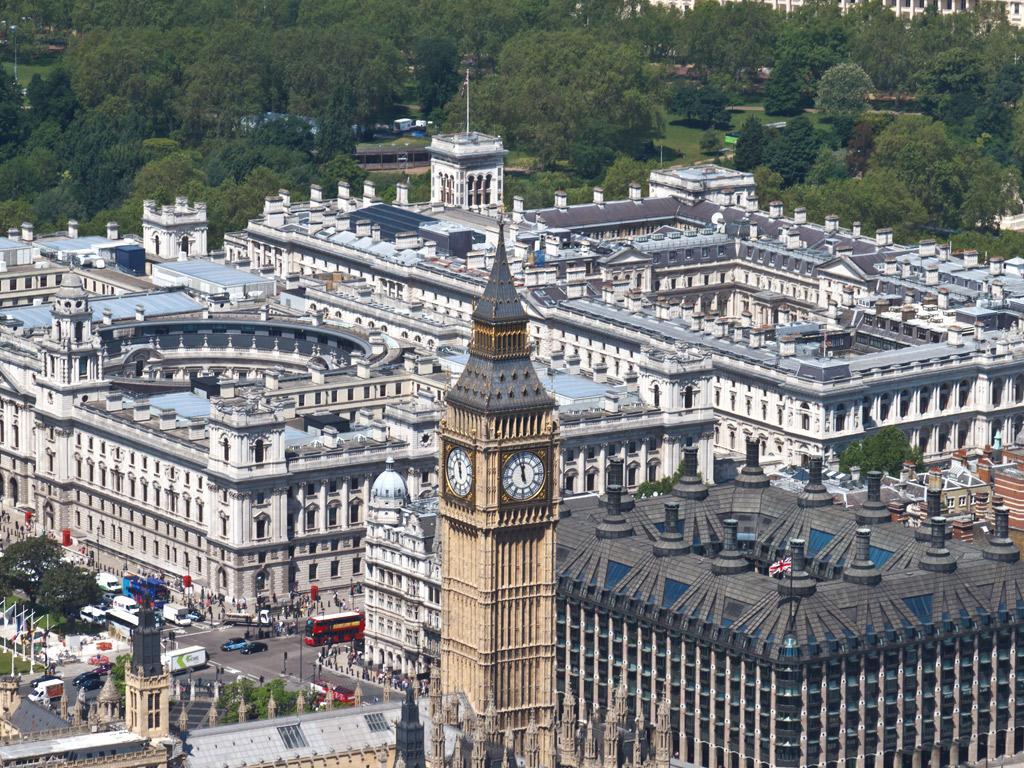Public sector pay cap: Government attacked by its own experts over 1% limit
‘There is a risk that the recruitment and retention position could deteriorate rapidly’, pay review body for top salaries warns

Your support helps us to tell the story
From reproductive rights to climate change to Big Tech, The Independent is on the ground when the story is developing. Whether it's investigating the financials of Elon Musk's pro-Trump PAC or producing our latest documentary, 'The A Word', which shines a light on the American women fighting for reproductive rights, we know how important it is to parse out the facts from the messaging.
At such a critical moment in US history, we need reporters on the ground. Your donation allows us to keep sending journalists to speak to both sides of the story.
The Independent is trusted by Americans across the entire political spectrum. And unlike many other quality news outlets, we choose not to lock Americans out of our reporting and analysis with paywalls. We believe quality journalism should be available to everyone, paid for by those who can afford it.
Your support makes all the difference.The 1 per cent cap on public sector pay rises has been attacked by the Government’s own experts, who warned the ability to fill jobs “could deteriorate rapidly”.
The body which advises on salaries paid to some NHS managers, military officers and top civil servants warned it could not “operate effectively” with its hands tied so tightly by ministers.
It questioned the “value in having an independent body” with the 1 per cent limit in place – also highlighting how staff are becoming “frustrated and demotivated”.
The strong criticism came amid the first evidence of the pay cap beginning to crumble, after senior Cabinet ministers joined calls for it to be lifted.
Damian Green, the effective deputy prime minister, agreed that pay review bodies will be able to lift pay above 1 per cent for some staff, provided overall budgets are not busted.
But the senior civil servants’ union, the FDA, immediately rejected the idea, warning it would fail to tackle the growing problems identified by the pay review body.
“What should be abundantly clear is that this cannot be achieved within a 1 per cent straitjacket,” said Naomi Cooke, the FDA’s assistant general secretary.
“Reform of senior civil service pay needs to be fully funded and it needs to happen soon - the current Government pay policy is failing and is doing so in a way that costs civil servants and costs the public dear.”
In the Commons, the Chancellor Philip Hammond faced calls to apologise after all but admitting he told last week’s Cabinet meeting that public sector workers are “overpaid”.
John McDonnell, the shadow Chancellor, also warned that an NHS pension scheme could be undermined as low wages have forced many to opt out.
“Low pay has forced many public sector workers to opt out of their pension scheme,” he told ministers at Treasury questions.
“Eleven per cent of NHS staff have opted out of their pension scheme, a figure that, if it continues to rise, potentially will undermine the whole scheme whatsoever.”
Diana Johnson, a former Labour former minister, said it was wrong for hikes to MPs’ pay to go through automatically, yet recommendations concerning public sector workers “are vetoed by ministers”.
But Ms Truss, the Treasury Chief Secretary, said the NHS review body, for example, had not seen “significant short-term nationwide recruitment and retention issues that are linked to pay”.
The row came after the Government agreed that pay should rise by the maximum 1 per cent permitted for state workers on senior salaries.
But, in making the recommendation, the Senior Salaries Review Body, warned: “In the current context, it is difficult for the SSRB to operate effectively.
“If the Government continues to see value in having an independent body to advise on senior salaries, we believe that some serious reflection is required about how to make better use of it.”
In reply, Mr Green agreed that “innovative” approaches to pay should be considered to focus on "maximising outcomes for lowest cost rather than limiting basic pay increases across the board”.
In the case of the senior civil service, the Government will allow money to be targeted at hard-to-fill posts while keeping within the overall pay limit, to tackle any recruitment problems.
Join our commenting forum
Join thought-provoking conversations, follow other Independent readers and see their replies
Comments